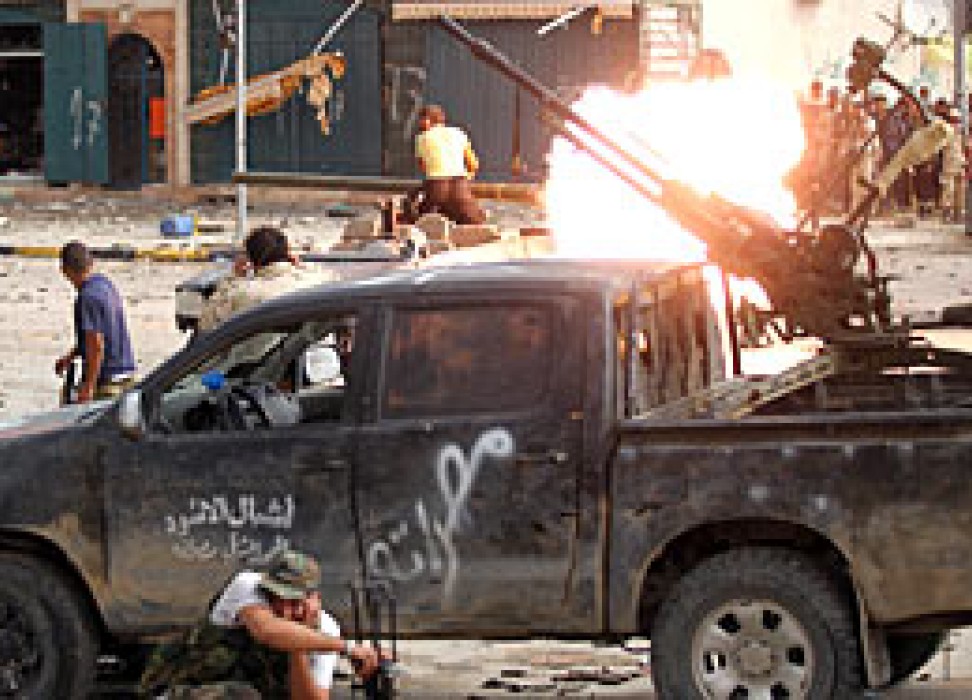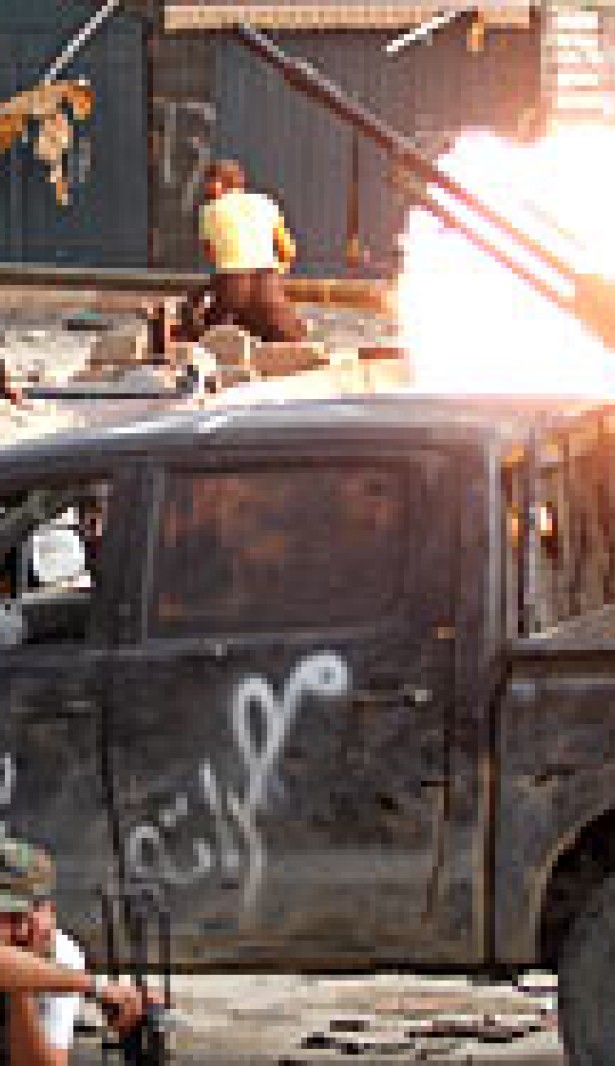Rebuilding Libya
18 October 2011

The UN Human Rights office estimates as many as 7,000 people are being held in detention in Libya presenting the interim administration with one of its most pressing and complex challenges. This assessment from Mona Rishmawi, the Chief of Rule of Law Branch at the UN Human Rights office follows a week-long mission to Libya to assess the country’s human rights priorities following the fall of the Gaddafi regime.
Describing existing conditions for the detainees as “a recipe for abuse”, Rishmawi said there is no functioning police force and the prison authorities are operating under a justice system which itself is not back up and running . The thousands of people being held come from many different backgrounds and there is no way of knowing exactly who they are because there is no thorough and rigorous screening system in place, she said.
At a news briefing in Geneva at the conclusion of the mission, Rishmawi said these people had been picked up by armed irregulars who have been fighting against the Gaddafi loyalists. “These irregulars,” she said, “have no training in running detention centres.”
Rishmawi, along with Hanny Megally, the Chief of the Asia, Pacific, Middle East and North Africa Branch at the UN Human Rights office met with the administrator of one of the prisons and subsequently raised the issue of provision of appropriate conditions for detainees with senior members of the Libyan Interim Council.
The United Nations and other agencies, she said, must step in to help the Libyan authorities deal with the issue as a priority.
During their week in Libya, the UN delegation which included the Secretary-General’s Special Representative Ian Martin and his team, travelled to the cities of Tripoli, Misrata and Benghazi and met senior ministers in the Transitional Council, other UN agencies and NGOs.
The delegation also visited two camps housing thousands of internally displaced persons. One of those is occupied almost exclusively by Somalis travelling through Libya on their way elsewhere and who remain anxious to move on. The other camp is populated by people who fled the fighting in the large city of Misrata and who are almost all Libyan citizens of African descent.
The future of these people presents the regime with further urgent challenges, Rishmawi said.
Speaking generally about allegations of sexual violence committed against women during the conflict, Rishmawi said it will be crucial that “there is” a lot of attention given to the claims. “Recognition of what actually happened is very important,” she said.
Of allegations that there are lists of Gaddafi supporters who have been or who will be targeted, the human rights delegation noted that a lot of people are afraid to return to their jobs. There was not a lot of talk of people taking the law into their own hands but still people are afraid of retribution, Rishmawi said, and the new government needs to be very clear how it intends to vet people.
Rishmawi said people from all walks of life talked of Colonel Gaddafi and without exception they wanted him captured and tried for his past actions. “They really want to see him answer for what has happened, “ Rishmawi said.
These and other significant issues that have arisen in the course of the war should and must be dealt with through a transitional justice process, she said.
The Human Rights office work in the area of transitional justice focuses on ensuring that those responsible for abuses are held accountable and that victims of abuse achieve justice and reparations for their losses. Transitional justice may include judicial and non-judicial mechanisms - prosecutions, reparations, truth-seeking, institutional reform – or a mix of some or all of these.
At the September meeting of the Human Rights Council, Philippe Kirsch, a Member of the Commission of Inquiry which reported on Libya earlier this year said the Commission was keen to more fully investigate allegations during the fighting of the use of mercenaries, child soldiers, and of sexual violence and violations against migrant workers. The Commission will return to Libya in November.
18 October 2011

VIEW THIS PAGE IN:
